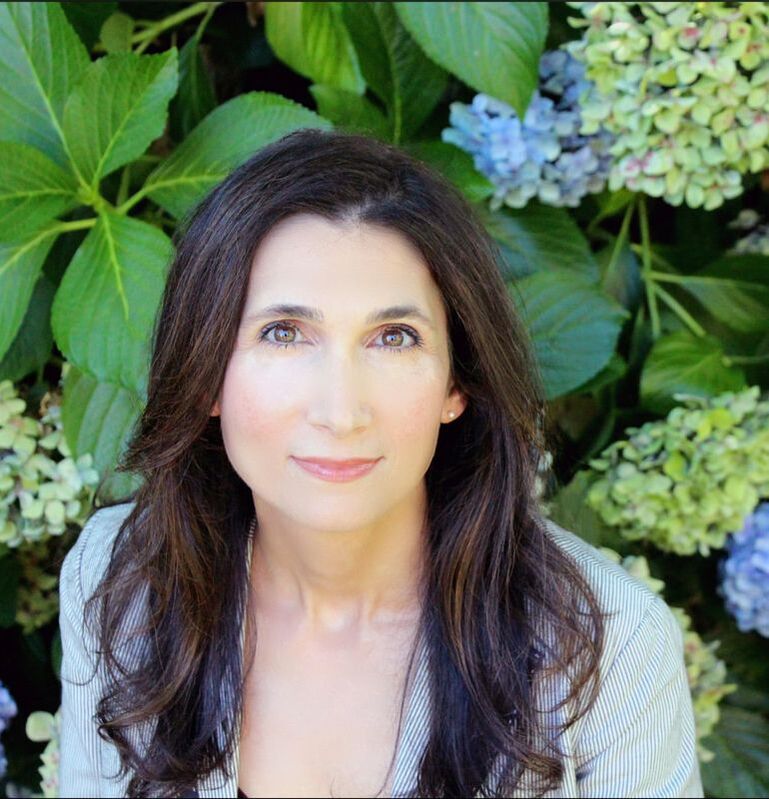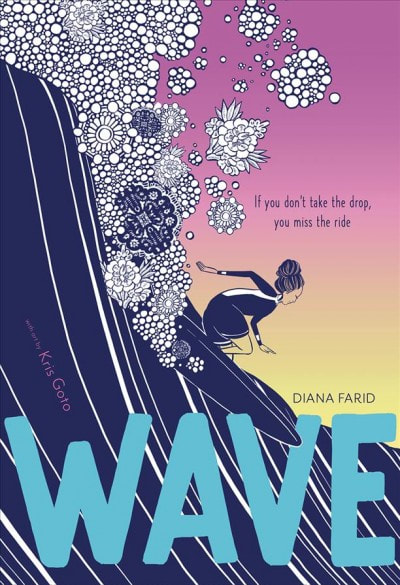| Diana Farid is a poet and award-winning author. Her debut novel in verse, Wave, tells the story of thirteen-year-old Ava, who must draw on every bit of hope and resilience within her to help her best friend fight for survival. Eloquent, heart-wrenching, and tender, we absolutely loved Wave, so we were thrilled to inter-view Diana Farid for this month's feature! Rapunzel Reads: One of the things that makes Wave such a standout is the gorgeous free verse it's written in. What's it like to write a novel in such spare lines, and what influence did that format have on the story as you were developing it? Was it a challenge to create such emotional depth with so few words? Diana Farid: Writing a verse novel in free verse with spare lines was a wondrous experience. It required me to hone in on the heart of the story and find the most powerful and direct words that would transmit that heart. I developed most of the story before I started writing WAVE. So when I went to put words to paper that would eventually become the book, I knew what I wanted to say. What was left to work out were some of the more creative poetic questions like, “What should a poem that says [insert feeling or plot point] look like?” or “How will I show dialogue here that will show the action and underlying themes?” and one of my favorites, “How can I be the most honest about what the experience I’m describing feels or sounds like?” Writing WAVE was one of the most challenging things I’ve done, because of the | Author photo credit: John Thomas Leppert |
RR: You've written that Wave was inspired by your own childhood. What was it like to write a fictional novel which overlapped with your own experiences?
DF: Uplifting. Empowering. Healing.
RR: I love how many passions Ava has, and how varied they are (surfing, music, poetry, etc.)---too often kids and teens are told they have to "pick one" interest or subject to focus on if they want to be successful, so it was refreshing to read about a character with a realistic variety of interests, and to see that portrayed in a positive way. Do you have any thoughts on the significance of creating such a character?
DF: You know that saying, “He/she/they wear a lot of hats.”? It makes sense to describe someone who does a bunch of different things in that way. But it’s a limiting analogy. It says that you can only use or show one of your interests at a time. But that’s not true. We don’t have to be interested in or involved in one thing, or even one thing at a time.
I think our humans hearts and minds are more like stars, like suns. We shine rays. And the rays are informed by everything we’ve experienced, and everything we want to explore. Letting Ava have all of that, love all of that, was my way of saying that most of us aren’t one dimensional even when we are focused on a specific task. We aren’t hat wearers that switch them around, that’s just not the reality of how most of us approach our lives and passions. Even if we are focused on a specific job or interest, most of the time, our other experiences and interests inform that work, enrich it, and make it more effective.
I recently heard the original drummer for the band Fanny say that “Success is doing what you love.” I agree with her. And, if some people have one love, one thing they want to focus on, great. But for a lot of us (like me), we have more than one thing we are passionate about, and can be successful in. I think reflecting that in Ava allows readers like her to see themselves and know they don’t have to choose. In fact, in some instances, radiating those interests might even be the key to a person’s success. For WAVE specifically, I think it created a more believable character and showed how enlightening it is when seemingly different things are brought together, like health and music and poetry.
RR: What is your favorite part of being an author?
DF: My favorite part of being an author is connecting with readers of my work. It’s a tremendous feeling to bring a story that is in your head and heart into the world and then hear from a reader who loved it, has been moved by it, felt seen by it, or walks into the world with wider arms because of it.
RR: Do you have any tips for an aspiring writer?
DF: One of my tips for aspiring writers is to not get caught up in a particular “way” of writing. Write in the way, using the tools, and with the schedule (or not) that allows you to put words on a page. That may be at a desk typing on a keyboard. It maybe using a software program that organizes your ideas. It maybe in your notes app on your cell phone. It might be with a paper or pen, in a notebook or on a legal pad. It might be dictated. The important thing is that it happens. Find the way that allows you to be honest, write freely, and limits going back and editing until you’ve said everything you want to say. You can revise later.
I wrote the entire first draft of WAVE in a green Mead notebook. I was able to take it almost anywhere, and it didn’t require a battery. Thinking back, it was risky to not have a back up. But writing that way let me be free of a computer, a keyboard, or a specific place. It was efficient, and allowed me to finish it without getting caught up in editing.
It’s easy to get entangled in, and then blocked by, an idea of how we should write. If that idea keeps you from writing, let it go. Because writing is not the same thing as bookmaking. Bookmaking will need the computer, and the screens. But writing doesn’t — it needs your mind, your heart, and the words only you can say.





 RSS Feed
RSS Feed
